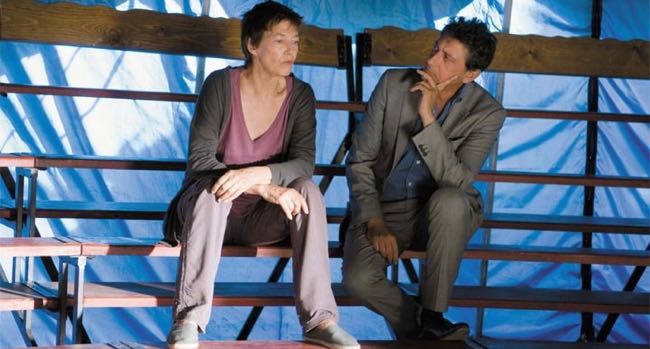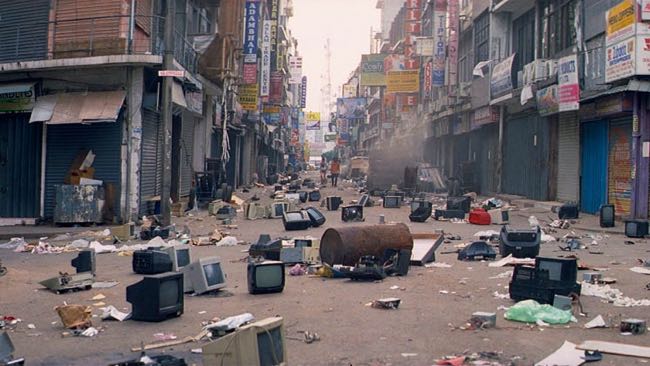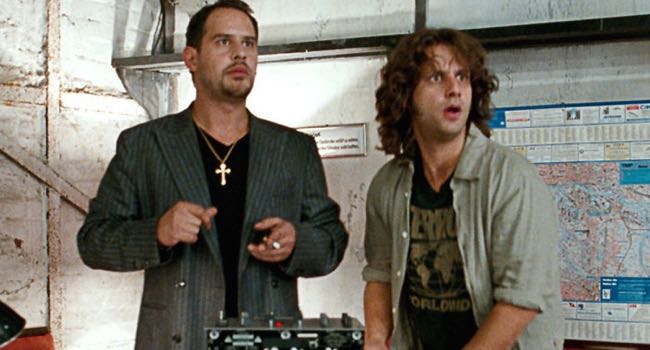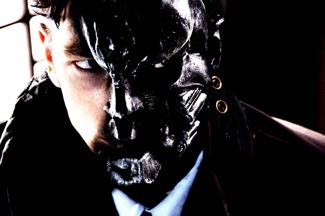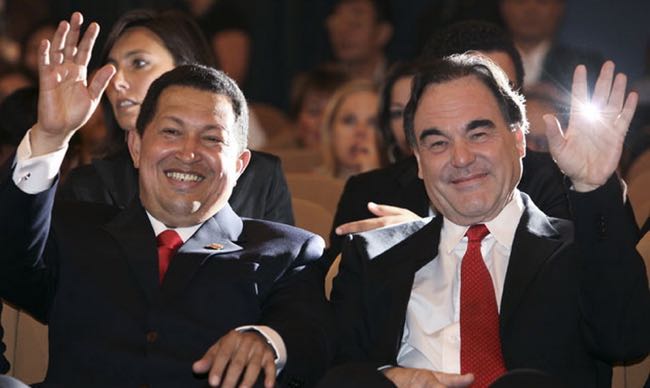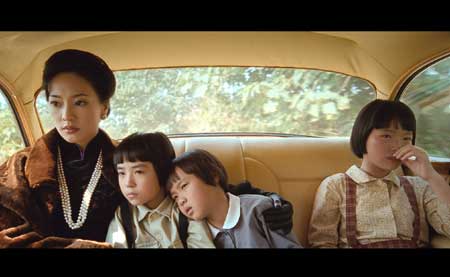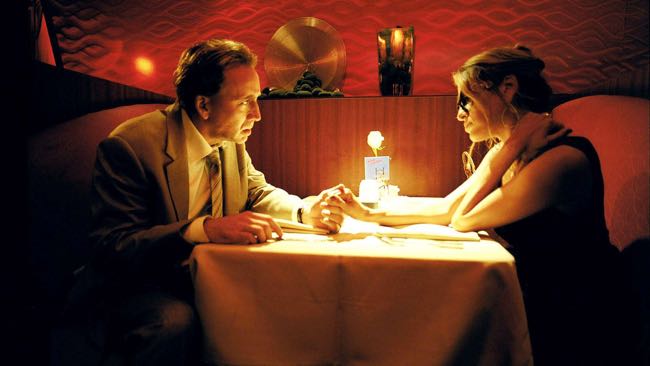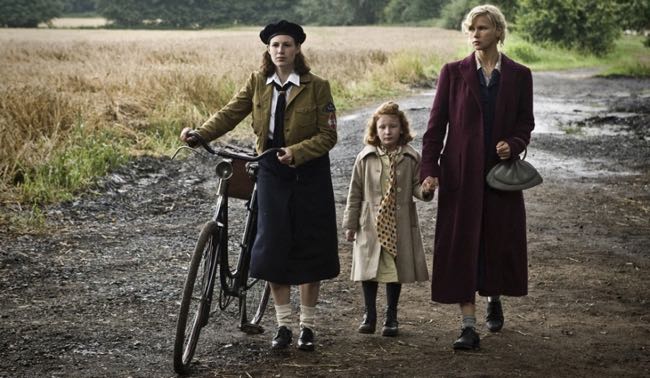VENICE – Jacques Rivette’s “Around a Small Mountain” (36 vues du Pic Saint Loup) is a fable about chance encounters and lost love set against a small traveling circus in France but it feels more like the characters are going round a molehill.
With no chemistry between leads Jane Birkin and Sergio Castellito (pictured), a distinct lack of dramatic tension and a ring with three lame acts but no lions or trapeze, this is a circus that won’t travel very far. Box office prospects appear slim even on home territory.
Castellito plays a well-appointed Italian named Vittorio about whom little is learned except that he drives a smart sports car and says he’s on the way from Milan to Barcelona. In the French countryside, he happens upon Kate (Birkin), whose four-wheeler has broken down.
Vittorio fixes the car in no time, and Kate invites him to come to see her circus, which has set up at a nearby town. There, Vittorio is the only one in a paltry audience to laugh at a trio of clowns who perform an act that involves smashing plates.
Afterwards, the top clown, Alexandre (Andre Marcon), asks him why he laughed. It’s a good question. Vittorio offers some suggestions and the next night he sees that Alexander has expanded the act although to no greater comic effect.
Still, Kate has piqued his interest and he sticks around gradually meeting the others in the show including Kate’s niece Clemence (Julie-Marie Parmentier), who tells him that her aunt has only recently rejoined the circus after leaving 15 years earlier due to the death of her lover.
Vittorio and Kate dance around each other as the Italian becomes an ad hoc member of the troupe but any sparks between them are left in the sawdust. Castellito tries hard to get into the spirit of things but when he ends up joining the clowns, their act remains stiff and unconvincing.
Birkin’s acting is a puzzle since her physical expressions often appear at odds with the words she’s speaking as if the language were foreign to her. The story is really about her character’s redemption but she’s required to deliver two tearful soliloquies, one in the empty circus tent and the other at a graveyard, and they both fall flat.
Sadly, too, the circus acts involve merely tumbling and juggling, and what is supposed to be a climactic scene involving a dangerous bullwhip has no crack at all.
Venue: Venice International Film Festival, In Competition; Cast: Jane Birkin, Sergio Castellito, Andre Marcon; Director: Jacques Rivette; Writers: Jacques Rivette, Pascal Bonitzer, Christine Laurent, Shirel Amitay; Director of photography: Irina Lubtchansky; Production designer: Manu de Chauvigny; Music: Pierre Allio; Costume Designer: Laurence Struz; Editor: Nicole Lubtchansky; Producers: Martine Marignac, Maurice Tinchant, Charlotte Henry, Margherita Chiti, Raffaela Campagnolo; Production: Pierre Grise Productions; Sales: Les Films du Losange; Not rated; running time, 84 mins.
This review appeared in The Hollywood Reporter.

